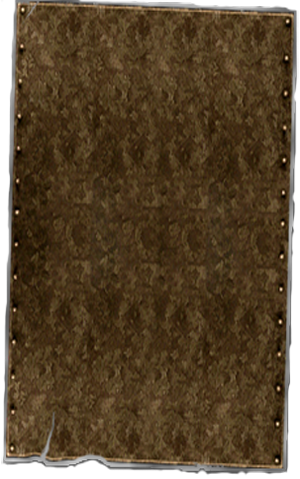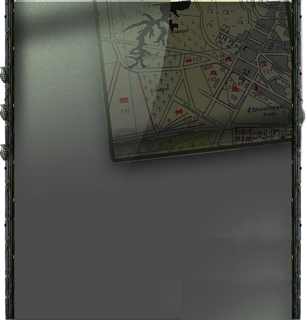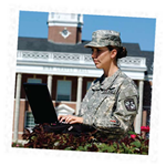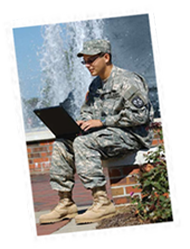







Dr. Paige Paquette teaches English composition
in an online environment to soldiers at Troy University, Ft. Benning/Columbus,
Georgia, while Captain Mike Warren is assigned to the United States Military
Academy in West Point, New York, where he serves as an English instructor.
Without any knowledge of the other, we both wrote proposals to Kairos that
mentioned our inclusion of O'Brien's The Things They
Carried in our webtexts. This inclusion
led to our collaborative webtext where we explain two methodologies for teaching
soldiers that are about as similar as football and baseball. Both are sports,
both use balls, but both are not equivalent. Our methods share pedagogical
similarities and audiences that include personnel assigned to uniformed
service, but they are not identical.
Soldiers often enroll in online courses in order to continue their educations while fulfilling their occupational duties. It is the participant collaboration within online courses, such as English composition, that transforms an online correspondence course to one in which participants are able to explore others' ideas, experiences, and conclusions. Online courses break down distance barriers that soldiers often face, and these courses provide these unique students with opportunities to interact with and receive feedback from their peers.
West Point cadets enroll at the Academy to learn how to become Army officers,
leaders of America's sons and daughters, but they are also in the composition
class to learn how to write effectively, to communicate comprehensible commands
to those sons and daughters. What better way to teach them both lessons simultaneously
than for these young cadets to help servicemen and women share their experiences
through written narratives? But how can helping soldiers write their
stories help cadets become more effective writers?
Collaborative learning’s greatest benefit to both the student—the cadet and the soldier—and the teacher is positive interdependence—the ability to become a participant in knowledge sharing rather than merely a consumer of it. Through individual exchanges via communications such as email or the discussion board in online composition courses, soldier-students are able to provide feedback to others based on the knowledge they have previously gained and the experiences that have been shaped by that knowledge. These exchanges provide online soldier-students with opportunities to gain new knowledge based on the information provided by the participants.